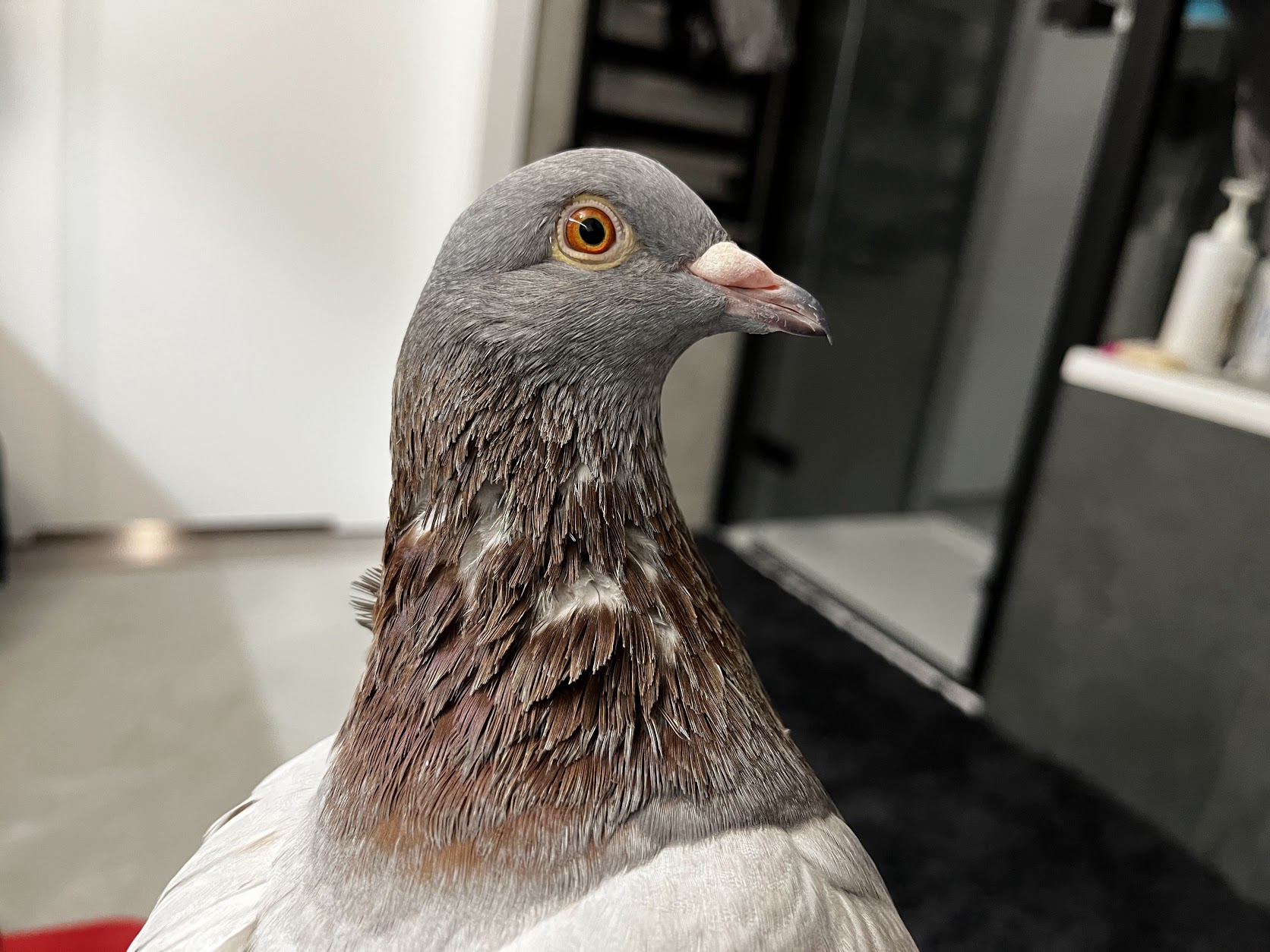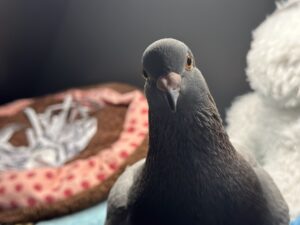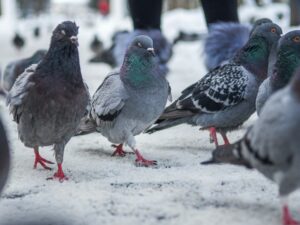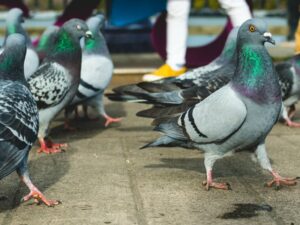Do pigeons carry diseases? Let me share with you my own experience.
When I first decided to adopt a rescued pigeon, I was filled with a mix of emotions. On one hand, I was excited at the prospect of giving a loving home to a bird in need.
On the other hand, I couldn’t help but be a little bit afraid. I had heard all the common misconceptions about pigeons – that they were dirty, disease-ridden birds that posed a threat to human health.
But as I learned more about these birds and the realities of their care, I realized that these fears were largely unfounded.
I have now been a proud pigeon owner for over a year, and I have come to see the beauty, intelligence, and affection of these birds firsthand.
Along the way, I have also learned the truth about pigeons and the potential risks of disease. And it is this knowledge that I wish to share with others through this article.
The purpose of this article is to dispel the myths and misconceptions about pigeons and their potential to carry diseases, based on my personal experience as a pigeon owner for over a year.
I hope that by sharing my story, I can help others to see these birds in a new light and to understand the reality of their care.
So, I want to let others know how wonderful it is to have a pigeon as a pet and how it is not necessary to be afraid of getting a disease from them.
JUMP TO:
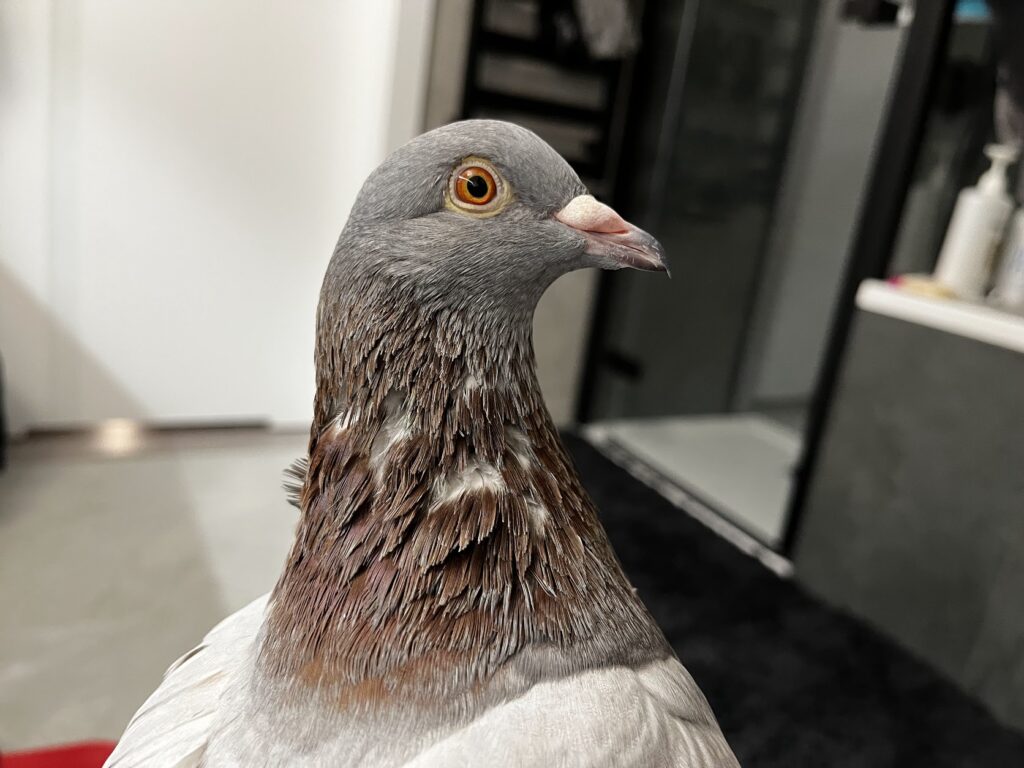
The facts about pigeons and disease
The reality of the diseases that pigeons can transmit to humans
Pigeons can carry a number of diseases that can potentially be transmitted to humans, such as salmonella and psittacosis. However, it is important to note that the risk of contracting these diseases from a pigeon is relatively low. In fact, the Centers for Disease Control and Prevention (CDC) states that, “the risk of getting sick from contact with pigeons or their droppings is low.”
How these diseases are contracted from pigeons and the actual likelihood of contracting them
Most diseases that can be transmitted from pigeons to humans are contracted through direct contact with droppings or by inhaling dust or debris contaminated with droppings. However, the likelihood of contracting a disease from a pigeon is relatively low if proper hygiene and sanitation measures are taken.
The importance of proper care and hygiene in preventing the spread of disease
To reduce the risk of contracting a disease from a pigeon, it is important to practice good hygiene and sanitation when caring for your bird. This includes washing your hands thoroughly before and after handling your pigeon or cleaning its living area, keeping its living area clean and free from droppings, and avoiding inhaling dust or debris contaminated with droppings.
Additionally, it is important to consult with an avian veterinarian to ensure your pigeon is healthy and not carrying any diseases.
Check these articles:
- 30 Facts About Pigeons
- 11 Myths About Pigeons
- Do Pigeons Mate For Life?
- Do Pigeons Explode When They Eat Rice?
The joys of living with a pigeon
I can say that the joys of living with a pigeon outweigh by far the possibility or risks of contracting a disease.
Personal anecdotes and benefits of having a pigeon as a pet
As a pigeon owner, I can attest to the many joys of living with these birds. My pigeon, for example, is an incredibly intelligent and affectionate creature. It has its own unique personality and loves to play with toys and interact with me. I have found that having a pigeon as a pet has greatly enriched my life and it is a great source of companionship and entertainment.
The intelligence, personality, and affection of pigeons
Pigeons are incredibly intelligent birds with complex social hierarchies. They have the ability to recognize individual human faces, and some experts believe that they even have the capacity for empathy. They can be trained to perform simple tricks, and many pigeon owners report that their birds have distinct personalities and preferences.
The importance of rescuing and rehabilitating pigeons, rather than culling them
Unfortunately, pigeons are often seen as a nuisance and are often targeted for culling. However, this is an inhumane and ineffective solution. Instead, rescuing and rehabilitating pigeons is a more humane and effective approach. By giving these birds a second chance, you not only save their lives, but also have the opportunity to appreciate their unique personalities and intelligence.
Are you thinking about having a pet pigeon? Read these articles:
- How To Pet A Pigeon
- What To Do With Eggs My Pet Pigeon Layed
- Are Pigeons Good Pets?
- How To Take Care Of A Pet Pigeon
Prevention and control
Personal measures taken to ensure the health and well-being of my pet pigeon
As a responsible pigeon owner, I take several measures to ensure the health and well-being of my pet pigeon. This includes maintaining a clean and hygienic living environment, providing a balanced diet, and regularly consulting with an avian veterinarian to ensure that my pigeon is healthy and free of disease. I also make sure to wash my hands thoroughly before and after handling my pigeon or cleaning its living area and also I avoid inhaling dust or debris contaminated with droppings.
The role of rescue organizations and avian veterinarians in promoting the responsible care of pigeons
Rescue organizations and avian veterinarians play a crucial role in promoting the responsible care of pigeons. These organizations provide resources and support for pigeon owners, including information on proper care and hygiene, as well as access to veterinary care. They also work to rescue and rehabilitate pigeons in need, providing these birds with a second chance at life.
The importance of educating the public on the facts about pigeons and disease, rather than perpetuating harmful stereotypes.
It is important for the general public to be educated about the facts about pigeons and disease, rather than perpetuating harmful stereotypes. By educating people about the realities of pigeon care and the low risk of disease transmission, we can help to change public perception and reduce the number of birds that are needlessly culled. We can also reduce fear and misinformation, and promote responsible and humane care for these birds.
Do pigeons carry diseases? Conclusion
This article aimed to dispel myths and misconceptions about pigeons and their potential to carry diseases, based on my personal experience as a pigeon owner for over a year.
From my personal experience, I can attest to the many benefits and joys of living with a pigeon. My pigeon is an intelligent, affectionate creature with a unique personality, and owning a pigeon has greatly enriched my life.
I have learned that having a pigeon as a pet is not something to be feared but something to be enjoyed with proper precautions.
I highly encourage others to consider rescuing and caring for a pigeon of their own. Not only will you be giving a loving home to a bird in need, but you will also have the opportunity to appreciate the beauty, intelligence, and affection of these birds firsthand.
By rescuing and rehabilitating pigeons, rather than culling them, you can help to dispel harmful stereotypes and promote responsible and humane care for these birds.
Frequently asked questions about pigeons carrying diseases
Can pigeons carry diseases?
Yes, pigeons can carry a number of diseases that can potentially be transmitted to humans, such as salmonella and psittacosis.
How are diseases contracted from pigeons?
Most diseases that can be transmitted from pigeons to humans are contracted through direct contact with droppings or by inhaling dust or debris contaminated with droppings.
Are pigeons more likely to carry diseases than other birds?
No, pigeons are no more likely to carry diseases than other birds.
What are the symptoms of diseases contracted from pigeons?
Symptoms of diseases contracted from pigeons can vary depending on the disease, but can include fever, headache, fatigue, and respiratory symptoms.
Are certain populations more at risk for contracting diseases from pigeons?
People with compromised immune systems, such as the elderly or young children, may be more at risk for contracting diseases from pigeons.
How can I prevent contracting a disease from a pigeon?
To prevent contracting a disease from a pigeon, it is important to practice good hygiene and sanitation when caring for your bird, and avoid direct contact with droppings or inhaling dust or debris contaminated with droppings.
Can I catch a disease from my pet pigeon?
The risk of catching a disease from your pet pigeon is low if proper hygiene and sanitation measures are taken.
Are wild pigeons more likely to carry diseases than domesticated pigeons?
Wild and domesticated pigeons have the same potential to carry diseases, however, the risk of contracting a disease from a domesticated pigeon is low if proper hygiene and sanitation measures are taken.
Can cleaning up pigeon droppings make me sick?
Cleaning up pigeon droppings can cause respiratory issues if not done properly, it is important to wear protective gear and use appropriate cleaning solutions.
Is there a vaccine for diseases contracted from pigeons?
There is no specific vaccine for diseases contracted from pigeons, however, practicing good hygiene and sanitation can effectively prevent the spread of disease.
Other articles you may be interested in:

